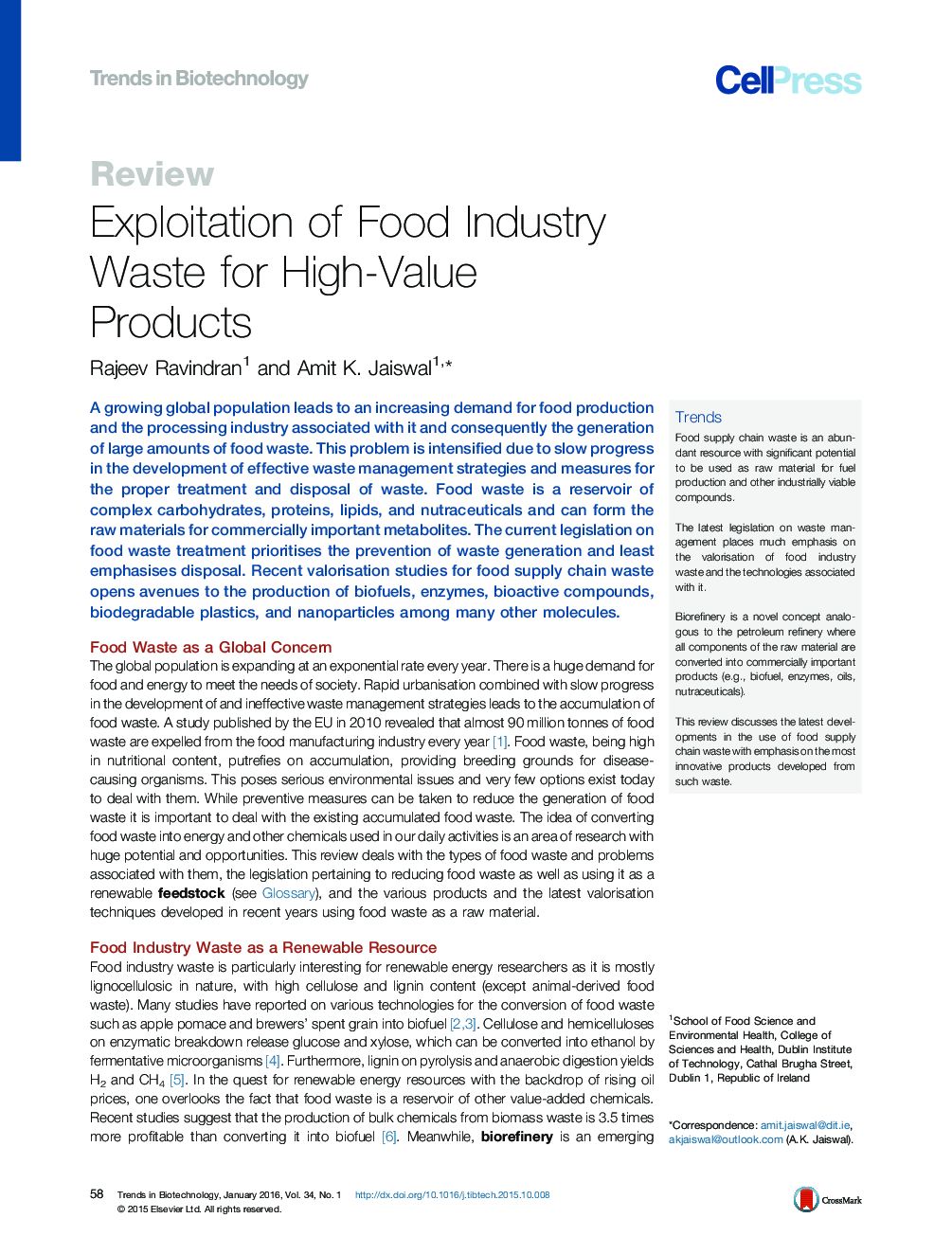| Article ID | Journal | Published Year | Pages | File Type |
|---|---|---|---|---|
| 36828 | Trends in Biotechnology | 2016 | 12 Pages |
A growing global population leads to an increasing demand for food production and the processing industry associated with it and consequently the generation of large amounts of food waste. This problem is intensified due to slow progress in the development of effective waste management strategies and measures for the proper treatment and disposal of waste. Food waste is a reservoir of complex carbohydrates, proteins, lipids, and nutraceuticals and can form the raw materials for commercially important metabolites. The current legislation on food waste treatment prioritises the prevention of waste generation and least emphasises disposal. Recent valorisation studies for food supply chain waste opens avenues to the production of biofuels, enzymes, bioactive compounds, biodegradable plastics, and nanoparticles among many other molecules.
TrendsFood supply chain waste is an abundant resource with significant potential to be used as raw material for fuel production and other industrially viable compounds.The latest legislation on waste management places much emphasis on the valorisation of food industry waste and the technologies associated with it.Biorefinery is a novel concept analogous to the petroleum refinery where all components of the raw material are converted into commercially important products (e.g., biofuel, enzymes, oils, nutraceuticals).This review discusses the latest developments in the use of food supply chain waste with emphasis on the most innovative products developed from such waste.
